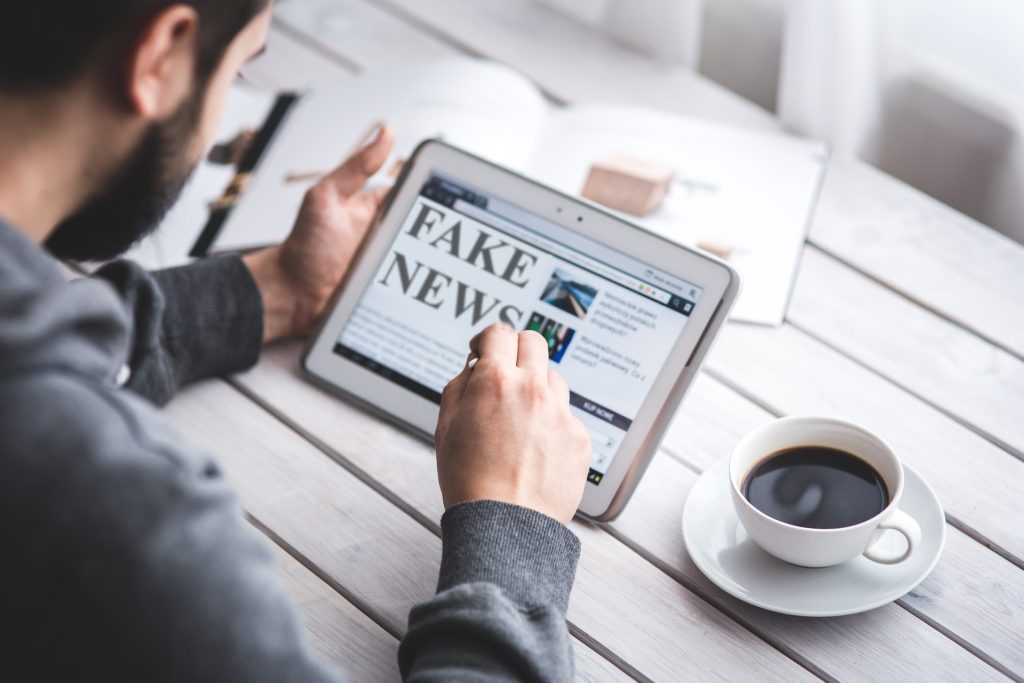
A new survey from Northeastern and Harvard Universities has found that if you get your news from social media, you are more likely to believe misinformation about coronavirus conspiracies, risk factors, and preventative treatments. The survey found that 28% of Snapchat users, 23% of Instagram users, and 25% Wikipedia users believed inaccurate claims. Further, of the 8% of people who were surveyed who received news from Facebook Messenger in the prior 24-hours, 26% were likely to believe a false claim. When looking at Whatsapp, 31% were likely to believe false information. It seems we judge television news, news websites, and apps differently, however. Only 11% of users who received news about the pandemic on those platforms believed false claims.
James Druckman is a professor of political science at Northwestern University. “The results confirm the initial fears that social media would contribute to misinformation about COVID-19. This misinformation may in turn have dire consequences when it comes to individual behaviors and group attributions,” Druckman said. The research was undertaken by the ‘COVID-19 Consortium for Understanding the Public’s Policy Preferences Across States’ as a collaboration between Northeastern University, Harvard University, Rutgers University, and Northwestern University. More than 21,000 people across 50 states and the District of Columbia were surveyed in August 2020.
Another alarming outcome from this study is that it was found that people who believe misinformation are also less likely to wear a mask. Additionally, those who believe COVID-19-related conspiracy theories are less likely to seek the COVID-19 vaccine. The research found that 47% of respondents who believe that COVID-19 originated as a weapon in a Chinese lab replied that they would receive a COVID-19 vaccination, whereas 63% of people who did not believe the claim or were unsure of it are willing to get the vaccination.
The report notes that both scholars and public health officials have expressed growing alarm over a COVID-19 “misinfodemic” − a parallel epidemic of misinformation. It references the Plandemic conspiracy theory as well as QAnon as fueling ‘rising skepticism about scientific facts across many areas of public life’ especially with respect to COVID-19. “Misperceptions, which can rapidly spread from obscurity to mass exposure via social media, may have the capacity to hinder the efficacy of public health efforts aimed at slowing the spread of the pandemic,” the report reads. “Encountering false claims online may ultimately reduce the willingness of some Americans to get a COVID-19 vaccine when it becomes available.”
The notion that misinformation is impacting vaccine rates is also supported by other studies. An academic paper titled ‘Vaccine Safety: Myths and Misinformation’ was written by a researcher from the Division of Infectious Diseases at The Children’s Hospital of Philadelphia. It states that ‘the reasons why people choose not to vaccinate are complex, but lack of confidence in vaccine safety, driven by concerns about adverse events, has been identified as one of the key factors.’ It also notes that healthcare workers, especially those in primary care, remain key influencers on vaccine decisions.
In 2019, The World Health Organization named vaccine hesitancy as one of the top ten threats to global health. Six common misconceptions about immunizations are listed on the WHO website, along with information disputing each of the misconceptions in an effort to fight misinformation. A Pew Research Poll in September found that just 21% of U.S. adults would definitely get a coronavirus vaccine. In May double that number were willing to receive it. Pew found that 51% of respondents say they would definitely or probably get a vaccine to prevent COVID-19 if it were available today; whereas 49% say they definitely or probably would not get vaccinated at this time.
Highlighting the necessity of having factual information in the public domain to help citizens make informed-decisions on vaccines, the American Medical Association sent a letter to Facebook, Pinterest, YouTube, Twitter, Amazon, and Google in 2019 — before the current pandemic had hit. In the letter, the AMA states that it is writing on behalf of physicians across the U.S. who are troubled by reports of ‘anti-vaccine-related messages and advertisements targeting parents’ on social media platforms. “As physicians, we are concerned that the proliferation of this type of health-related misinformation will undermine sound science, further decrease vaccinations, and persuade people to make medical decisions that could spark the spread of easily preventable diseases,” the AMA says.
